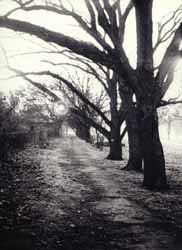|
[Analog Everything]
 In this world of digital wonders, why are we so fascinated with
things analog? Mechanical watches and fountain pens have become status symbols, but what is the attraction? It involves the appreciation of well-made artifacts, and a certain nostalgia.
Expensive fountain pens were status symbols in the 1920’s just as they are today. Fine watches have always been cherished for beauty as well as mechanical precision. But it seems the advent
of digital technology has given many things analog an air of antiquity. In this world of digital wonders, why are we so fascinated with
things analog? Mechanical watches and fountain pens have become status symbols, but what is the attraction? It involves the appreciation of well-made artifacts, and a certain nostalgia.
Expensive fountain pens were status symbols in the 1920’s just as they are today. Fine watches have always been cherished for beauty as well as mechanical precision. But it seems the advent
of digital technology has given many things analog an air of antiquity.
- The fact is, many of our mechanical wunderkinds will long outlast the cheap digital junk that is being made today. My Casio calculator watch has lasted nearly ten years on one
battery (pretty remarkable, really), but when it finally dies I will be more likely to buy another than to attempt to replace the battery. So much of what we make today is made to be thrown away when it breaks.
- My Leica M4 camera will still be repairable and capable of taking pictures in 2050, long after most electronic cameras have ceased being repairable. It is doubtful if even
the most expensive digital cameras will be repairable much beyond 30 years.
- Digital technology involves sampling. To a large degree, the choice between analog and digital boils down to a matter of subtlety of perception—at what point can you
not tell the difference between the two.
- If we investigate the origin of the word analogue, we see it is derived from the Latin analogus, meaning proportion, so an analogue is simply something proportionate to
something else. In the end, the difference between analog and digital breaks down and we see they are merely different techniques of sampling data.
- Whether it be an analog or a digital process, its real value to us is a function of how much data we need versus how much the process can capture. Take photography,
for instance. One will always get more data by using the finest-grained film in the largest format possible. But one does not always need so much data. Every format,
analog or digital, has its limitations. We choose the bandwidth we need for the job at hand.
- “The next question that arises is, are we humans analog or digital? We don't yet know the answer to this question. The information in a human is mostly to be found
in two places, in our genes and in our brains. The information in our genes is certainly digital, coded in the four-level alphabet of DNA. The information in our brains is still
a great mystery. Nobody yet knows how the human memory works. It seems likely that memories are recorded in variations of the strengths of synapses connecting the
billions of neurons in the brain with one another, but we do not know how the strengths of synapses are varied. It could well turn out that the processing of
information in our brains is partly digital and partly analog. If we are partly analog, the down-loading of a human consciousness into a digital computer may involve a
certain loss of our finer feelings and qualities. That would not be surprising. I certainly have no desire to try the experiment myself.
“It turns out that they are right, and life cannot survive for ever, if life is digital, but I am right, and life may survive for ever, if life is analog. This conclusion was
unexpected. In the development of our human technology during the last fifty years, analog devices such as LP records and slide-rules appear to be primitive and feeble,
while digital devices are overwhelmingly more convenient and powerful. In the modern information-based economy, digital wins every time. So it was unexpected to
find that under very general conditions, analog life has a better chance of surviving
than digital life.” --Freeman Dyson, Is Life Analog
or Digital? at
http://www.edge.org/3rd_culture/dyson_ad/dyson_ad_index.html
|
|

